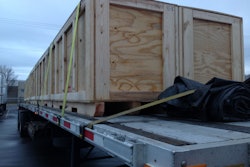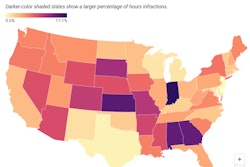Brokers and direct shipper customers frequently attempt to require that they be added to your liability insurance policy as what's known as an "additional insured." This is a covert means to gain free insurance from an independent owner-operator or small fleet as well as avoid financial responsibility when or if they cause some kind of bodily injury or property damage.
The practice of demanding being named additional insured has been so common throughout recent history as to go unquestioned in the minds of young brokers and freight agents, and in many cases the owner-operators working with them to keep the trailer full.
Yet one longtime transportation attorney included the additional insured ask as one of his Dirty Dozen (now well more than a dozen, in fact) risk-transfer contract practices that carriers should do all they can to avoid. The attorney recommended carriers respond to shipper or brokers demands by insisting on an insurance policy endorsement that IDs the shipper as additional insured "only to the extent that the liability arose out of the carrier's ongoing operations performed for that insured."
Then: use your rate structure with the shipper or broker to recover any additional insurance premium cost. Many insurance companies won't charge more for the practice directly in premiums, but some charge a nominal flat fee for such additions.

[Related: Beware what you sign with brokers: Freight-payment offsetting of cargo claims a ‘sucker’s game’]
As an alternative, too, independents and small fleets might simply warrant in contract that they hold required insurance and will provide certificates of insurance upon request. Don't be afraid to ask your insurance underwriter for comment, too, upon any additional-insured demand. Not all insurers agree about just what coverage a shipper/broker gets just by being added.
A lesser-known, but even worse, condition often included in a broker or customer’s agreement or contract is a "waiver of subrogation." Many truckers are completely unaware of the potential adverse consequences of providing a waiver of subrogation to a broker or customer. Subrogation is a legal tool used by an insurance company to recover losses it paid out to an insured (after a claim) from a liable third party, who is responsible for those losses.
Say an owner-operator checks in at a direct customer’s facility and is told to go to a certain dock door. While backed into that door, an overhang falls and damages the trailer. The customer says the driver was backed to the wrong door, that the damage was not their fault and to contact their insurer. The owner-op submits a physical damage claim to his own insurance, yet manages to provide sufficient proof to the insurance company that the failed dock overhang was in fact the one that the shipper sent him to.
With a waiver of subrogation, however, the insurance company cannot force the customer to reimburse them for the settlement of the claim. That claim then becomes a permanent black mark on the owner-op’s insurance history, likely resulting in an increase to future premiums.
Read next: Insurance to defend against the downhill threat of post-crash litigation








